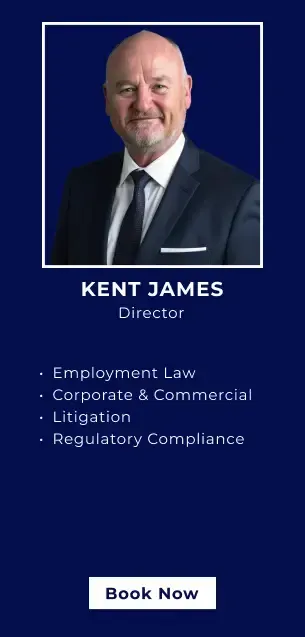Changes to Casual Employment Laws
Do you have casual employees?
Are you ready for 27th September 2021?
In March 2021, changes to the Fair Work Act 2009 (Cth) (FW Act) came into effect which significantly altered the definition and entitlements for casual employees.
These changes were brought about from the Fair Work Amendment (Supporting Australia’s Jobs and Economic Recovery) Bill 2020 (the Bill) and include:
- adding a definition of a casual employee
- providing a mechanism for casual conversion to allow casual employees to become permanent employees
- placing an obligation on employers to provide a Casual Employment Information Statement (CEIS) to new and existing casual employees
- a statutory set-off provision which allows the Court to reduce amounts payable for statutory leave and entitlements by the casual loading
Employers, other than Small Business Employers as defined under the FW Act, who employ casual employees employed before 27 March 2021 are required to comply with the casual conversion provisions and assess all casual employees for conversion by 27 September 2021.
What employers must do to comply?
The FW Act requires an employer to make an offer of permanent employment where they meet the eligibility criteria. The eligibility criteria include:
- Has the employee been employed by the employer for a period of 12 months or more?
- Has the employee worked a regular pattern of hours on an ongoing basis during the last 6 months of employment?
- Could the employee continue working these hours without significant adjustment?
Before 27 September 2021, employers must identify all existing casual employees employed before 27 March 2021 and assess whether they are eligible to be offered to convert to permanent employment. When assessing if an employee is eligible, employers must take into account:
- the eligibility criteria; and
- any reasonable grounds that prevent an employer from making an offer of conversion.
Reasonable grounds must be based on facts that are known or reasonably foreseeable at the time of deciding not to make the offer. Employers then need to provide a written notice to each employee notifying them if they are eligible or not for casual conversion.
Where an employer does not make an offer of casual conversion, they are required to provide the reasons explaining why they won’t be making an offer.
If an employee accepts an offer to convert, employees need to respond to the offer within 21 days. If an employee fails to respond in this timeframe, the employer can assume the employee has declined the offer. Employers must also issue a copy of the CEIS to all remaining employees. A copy of this can be found on the Fair Work Ombudsman’s website.
Employee requests for casual conversion
An eligible employee employed after 27 March 2021 can request an employer, other than a Small Business Employer, to covert to permanent employment from 21 days after their 12 month work anniversary. Existing eligible employees, except those employed by a Small Business Employer, who were employed before 27 March 2021, can make a request for casual conversion from 28 September 2021.
If you are a Small Business Employer, an eligible employee employed after 21 March 2021 can make a request to convert to permanent employment any time on and from their 12 month work anniversary. Eligible existing employees employed by a Small Business Employer can make a request for casual conversion any time.
An employee is unable to make a request for permanent employment if, in the last 6 months:
- the employee has refused an offer of permanent employment by the employer
- the employer has advised the employee that they would not be making an offer of permanent employment and advised them of the reasonable grounds for doing so
- the employer has refused a request for casual conversion on reasonable grounds
Employees may be able to make a request within 6 months after the employer has advised they will not be making an offer on reasonable grounds because the employee hadn’t worked a regular pattern of work for 6 months. This is only applicable where the employee hadn’t worked a regular pattern of work for 6 months or more before the earlier request, but at the time of the new request they have.
The request must be in writing and be for:
- full-time employment, if the employee’s hours worked for the last 6 months or more have been equivalent to full-time hours
- part-time employment, if the employee has worked a regular pattern of hours within the last 6 months or more, if the employee has worked the hours for the last 6 months or more and were less than full-time hours.
The employer must have reasonable grounds to refuse a request and provide those reasons to the employer in its response to the request. The employer cannot refuse a request unless they have discussed the reasonable grounds to refuse the request with the employee directly.
After a request has been accepted
If an employer receives a request from an employee, the employer must respond to the request in writing within 21 days from the request. The response should include if the employer has accepted or rejected the request. Before the employee can convert to permanent employment the employer and employee must discuss the following:
- Whether the employee will be employed on a full-time or part-time basis
- The hours of work the employee will performing as a permanent employee
- The start date of the employee
Call CJM Lawyers on
1300 245 299 to discover how our employment lawyers can assist.
Contact Us Now!
For comprehensive legal services,
book now for your free initial consultation.
Contact Us
We will get back to you as soon as possible.
Please try again later.
Contact Us Now!
For comprehensive legal services,
book now for your free initial consultation.
Contact Us
We will get back to you as soon as possible.
Please try again later.
Our Latest Story


Our Latest Story


Our Latest Story


Our Client Say



Our Client Say



Our Client Say






















